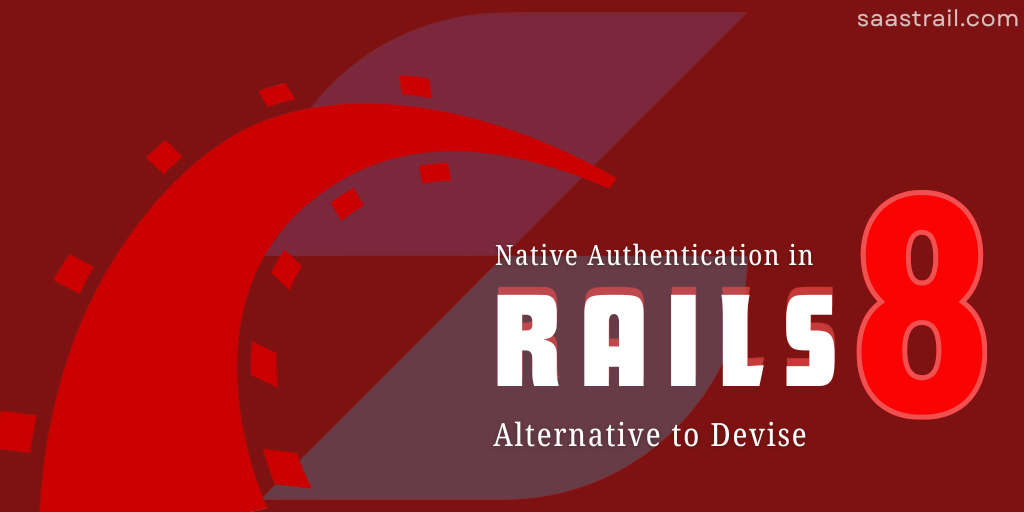
Ruby on Rails 8 adds a new tool for authentication.
This feature helps you set up user login without using third-party gems like Devise.
It’s fast, lightweight, and built into the framework.
Why Native Authentication Matters in Ruby on Rails
Before Rails 8, developers had two ways to handle authentication:
- Writing it yourself using
has_secure_password - Using a full gem like Devise
Devise is powerful, but it’s often too complex for smaller apps.
You may not need all of its advanced features.
Rails 8 now provides a built-in authentication generator.
It saves time and keeps your app light.
What the Ruby on Rails 8 Authentication Generator Provides
When you run the generator, Rails creates a complete set of authentication features, including:
- It creates a
Usermodel with secure passwords usingbcrypt. - Controllers for sessions and registrations
- Pre-built views for login, signup, and logout
- Routes to handle the full authentication lifecycle
With this, you can build login systems quickly and keep full control of your code.
Ruby on Rails Native Authentication vs Devise
Let’s compare Rails 8’s built-in authentication with the Devise gem:
| Feature | Rails 8 Native Auth | Devise Gem |
| Setup Complexity | Very low | Moderate |
| Customization | Full control | Requires overrides |
| Features (2FA, Lock, etc.) | Minimal | Extensive |
| Best For | Small/medium apps | Complex apps with advanced auth needs |
Pick Rails 8’s auth when you need a simple setup and full control. Choose Devise if your app requires features like:
- Email confirmation
- Two-factor authentication (2FA)
- Account locking or throttling
- Password recovery workflows
When Should You Use the Built-in Generator?
Go with Rails 8’s native authentication if:
- You want to avoid extra gems
- Your app just needs login and signup
- You prefer simple, clear code
- You need full control over your auth system
It’s great for startups, MVPs, internal tools, or any app where you want to keep things minimal and secure.
How to Set Up Native Authentication in Rails 8
Run the following command:
bin/rails generate authentication User
Rails will create:
- A migration for the
userstable - A
Usermodel withhas_secure_password - Controllers:
sessions_controller.rbandregistrations_controller.rb - Views for login and signup
- Route definitions
Finally, run rails db:migrate and add bcrypt to your Gemfile if it’s not already included.
Final Thoughts
The new native authentication feature in Ruby on Rails 8 is simple, fast, and effective.
It gives you a clean way to manage users without external gems.
For many apps, this is all you need.
If you later need more advanced features, you can always add Devise or another gem.
More Ruby on Rails Insights
Check out more tutorials and guides at SaasTrail — your go-to resource for modern Ruby on Rails development tips.


